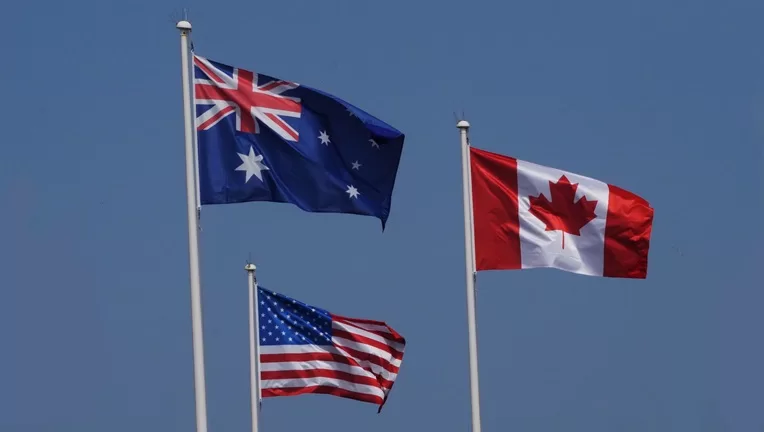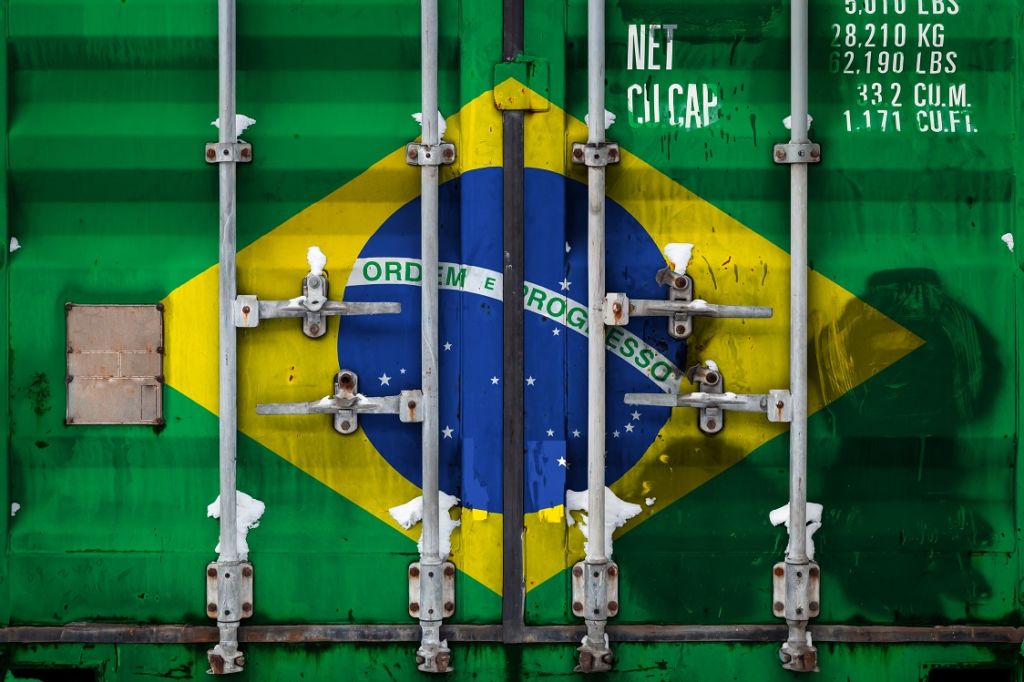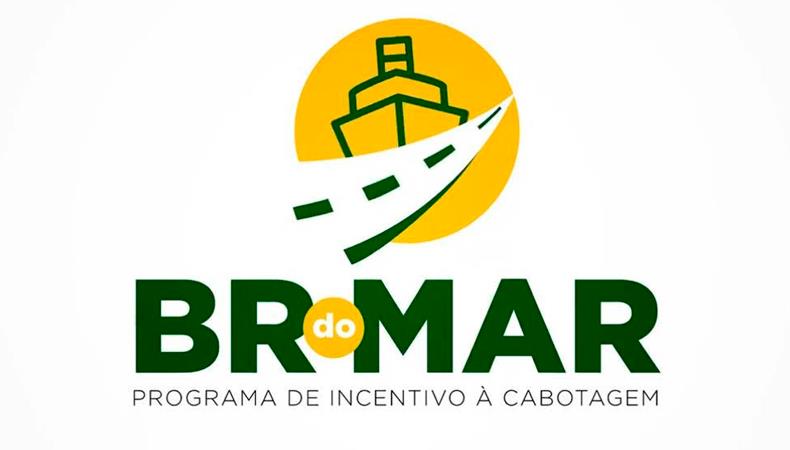
Visa requirements resumed for some nationalit...
read more

The rules governing cabotage navigation will undergo significant changes with the “BR do Mar” Bill, which aims to attract foreign shipowners to foster competitiveness in the sector and increase the share of waterway transport in the national transportation matrix
Domestic navigation is generally governed, among other regulations, by Decree 9,432 of 1997 that defines “cabotage” as navigation between ports or points in Brazilian territory, by sea or inland waterways. Coastal shipping to southern neighbours Uruguay and Argentina is colloquially referred to as “long (or Mercosur) cabotage” in light of bilateral agreements with these countries, although this is legally long-haul navigation.
The regulation distinguishes between a Brazilian shipowner and a Brazilian Shipping Company (Empresa Brasileira de Navegação – EBN). The former is defined as a natural person fixed in Brazil who prepares the vessel for commercial exploitation in his name or under his responsibility; the latter is a legal entity incorporated under Brazilian Law, headquartered in the country, and duly authorised to carry out waterway transport activities.
Currently, the operation of foreign-flagged vessels in the cabotage, inland waterway navigation, and port and maritime support is restricted. Existing legislation also limits the ability of EBNs to charter in and operate foreign vessels in Brazilian waters.

Vessels owned or bareboat chartered to an EBN, with flag suspension and registered with the Brazilian Special Registry (REB), can fly the Brazilian flag and, as such, be eligible to operate in the cabotage trade. Brazilian-flagged vessels enjoy some duty and tax benefits and may waive pilotage services in national ports under certain conditions.
Decree 666 of 1969, as recently amended, provides that shipowners from exporting and importing countries have precedence in maritime trade with Brazil. It stipulates that cargoes prescribed in bilateral agreements may be waived in favour of carriers in the exporting or importing state, weighing up to 50% of the transported volume, provided that the buyer’s or seller’s legislation reciprocates the treatment.
In the absence of a ship owned or chartered by a Brazilian company, the regulation allows transport on a vessel flying the flag of the exporting or importing country. If still unavailable, the cargo may be carried on a ship of any other flag approved by the federal regulatory agency.
Given that Brazil does not have a significant long-haul merchant fleet, in practice, almost all international maritime cargo is transported by foreign carriers.
Long cabotage is generally regulated by trade agreements, according to which cargo moved between ports of the signatory countries must preferably be transported on vessels flying their respective flags.
The main bilateral agreements on Mercosur cabotage are about to end. Last September, the president announced that Brazil will not renew the trade deals with Uruguay, which expired on 7 October 2021, and Argentina, which will be discontinued after 5 February 2022.
The government claims the move aims to encourage the entry of foreign shipowners in the cabotage market to boost the sector’s competitiveness and expand the participation of the waterway modal in the Brazilian transportation matrix. Only about 11% of the domestic freight is waterborne, even though the country has a vast coastline and extensive commercially navigable inland waterways.
Data from the Federal Agency for Waterway Transport ANTAQ indicate that only about a dozen EBNs are currently registered to operate in cabotage.
Cabotage cargo must be covered by electronic invoices (NF-e) and electronic bill of lading (CT-e). As the collection systems of the federal, state and municipal tax authorities are interconnected, NF-e data are referenced in the corresponding CT-e.

While traditional bills of lading are issued for cargoes bound for overseas ports, shipments carried in the cabotage are supported by an Electronic Bill of Lading (Conhecimento Eletrônico de Transportes – CT-e). Its printable version, the Auxiliary Document of the Electronic Bill of Lading (Documento Auxiliar de Conhecimento de Transporte Eletrônico – DACTE), physically accompany the goods. Applicable law, jurisdiction and terms and conditions of carriage are incorporable in the CT-e.
The legitimacy and validity of the CT‐e, compulsorily issued by an EBN, is verifiable on the CT-e Portal, managed by the Brazilian Ministry of Finance.

Under Brazilian tax legislation, all goods sold or transported in the domestic market must be covered by an Electronic Invoice (Nota Fiscal Eletrônica – NF-e) and its printable version, the Auxiliary Document of the Electronic Invoice (Documento Auxiliar de Nota Fiscal Eletrônica – DANFE).
The authenticity of the NF-e/DANFE, issued by the cargo sellers to the buyers, can be verified on the NF-e Portal.
The government is implementing changes to cut red tape and merge dozens of tax and transport-related documents into a single paperless platform. The changes will be implemented gradually; firstly in the road transport. It is expected that the routine and workflow of CT-e/DACTE will soon be changed.
Read more on the upcoming Electronic Transport Document (DT-e) platform.
Although the CT-e functions as evidence of the contract of carriage and receipt of the goods handed in for transport, it is not a title document, meaning that the title over the goods is not transferable by endorsement. Therefore, a CT-e differs substantially from electronic B/L platforms approved by the International Group of P&I Groups (IGP&I).
Nevertheless, there are no implications for the P&I cover afforded to members whose owned, or chartered vessels are engaged in the cabotage market. The CT-e must be issued in compliance with national laws, and its form or content does not attract any additional risks to the carrier as those already existing with cargoes covered by a standard B/L.
Although the cargo value is expressed on the CT-e for tax controls, it is not construed as an ad valorem B/L. The carrier’s liability is limited to the value shown on the CT-e or in the Bill of lading, in the absence of which package limitation may apply.
Unlike an ordinary bill of lading, the CT-e does not need to be surrendered by the consignee to take delivery of the goods, as the entire process is done electronically, with no risk of cargo misdelivery.
Civil liability for shortage, damage or late delivery of cargo carried in the cabotage under a CT-e is subject to the same legal regime applicable to overseas shipments covered by an ordinary bill of lading.
The shipowner or bareboat charterer who undertakes the actual carriage is responsible for the nautical and crew management of the vessel.
The EBN will be responsible for contractual cargo claims in the first instance, regardless of whether the vessel is owned or chartered, with a right of recovery from the actual carrier.
For foreign vessels chartered to Brazilian companies to operate in the cabotage, it is common for the contracting parties to agree on charter party clauses where the EBN undertakes to issue the CT-e and comply with the relevant tax requirements exempting the shipowner from any liabilities.
Read more about cargo claims in Brazil.
According to Decree 9,432/1997, Brazilian-flagged vessels must employ a Brazilian captain and chief engineer, with two-thirds of the crew necessarily comprising Brazilians.
The Migration Law and subsequent regulation provide that foreign-flagged cargo vessels in continuous operation in Brazilian waters must employ rising percentages of Brazilian seafarers and other professionals proportional to the length of stay at all technical levels and in all departments. Those trading on the Brazilian coast and inland waterways for more than 90 days of continuous operation must be crewed by one-fifth of a Brazilian workforce. After 180 days, the fraction must be increased to one-third of Brazilian crewmembers.
Read more about immigration requirements for foreign seafarers engaged in the Brazilian cabotage.
In 2020, the federal government submitted to the National Congress’ consideration Law Project 4,199/2020, named Cabotage Transport Stimulus Program – BR do Mar (Brazil of the Seas).

The ultimate goal is to consolidate low-cost and environmentally-friendly cabotage navigation and increase its modest share in the Brazilian transportation matrix to 30%.
The Bill intends to increase competition in the sector by expanding the offer and quality of services in this niche, fostering competitiveness, and promoting Brazilian seafaring training and qualification, also stimulating the development of the dying naval industry of cabotage.
BR do Mar would boost the cabotage industry by opening trade routes, offering new services and exploring market opportunities through Brazilian Shipping Investment Company (Empresa Brasileira de Investimento na Navegação – EBN-i). The EBN-i would invest in the fleets and charter them out to EBNs or foreign shipowners to operate them commercially. The EBN can be wholly owned by foreign capital and would not need to own a vessel to obtain an operation license, as is the case today.
The project also intends to optimise the spending of resources collected through the “Additional on Freight for Renewal of the Merchant Fleet” (AFRMM). It is a surcharge calculated as a percentage of the freight rate, ranging from 10% to 40%, paid to the Merchant Navy Fund (FMM) to enhance shipbuilding and improve the waterway cargo transport system.
The new legislation maintains the current regulation that requires vessels operating for more than 180 days in Brazilian waters to hire at least two-thirds of Brazilian crewmembers at each technical level and in all ship departments. The master, cabotage master, chief engineer and engine technician must be Brazilians.
Owned and chartered vessels engaged in the cabotage must have insurance and reinsurance for hull and machinery damage and civil liabilities. EBNs may contract cover in the international insurance market.
The Bill was approved by the Lower House (Chamber of Deputies) in December 2020 and referred to the Upper House (Federal Senate), where it passed through various commissions this year. Eventually, last week, the senators approved the BR do Mar with some amendments.
The House of Representatives will now review the changes made by the Senate. It is believed that the amended text will pass without much resistance. The government and its leaders in the National Congress are closely following the developments.
A detailed report on the BR do Mar and its expected effects on maritime transport will be prepared as soon as the Bill is approved by the National Congress, sanctioned by the Brazilian president, and finally regulated.
Please read our disclaimer.
Related topics:
Rua Barão de Cotegipe, 443 - Sala 610 - 96200-290 - Rio Grande/RS - Brazil
Telephone +55 53 3233 1500
proinde.riogrande@proinde.com.br
Rua Itororó, 3 - 3rd floor
11010-071 - Santos, SP - Brazil
Telephone +55 13 4009 9550
proinde@proinde.com.br
Av. Rio Branco, 45 - sala 2402
20090-003 - Rio de Janeiro, RJ - Brazil
Telephone +55 21 2253 6145
proinde.rio@proinde.com.br
Rua Professor Elpidio Pimentel, 320 sala 401 - 29065-060 – Vitoria, ES – Brazil
Telephone: +55 27 3337 1178
proinde.vitoria@proinde.com.br
Rua Miguel Calmon, 19 - sala 702 - 40015-010 – Salvador, BA – Brazil
Telephone: +55 71 3242 3384
proinde.salvador@proinde.com.br
Av. Visconde de Jequitinhonha, 209 - sala 402 - 51021-190 - Recife, PE - Brazil
Telephone +55 81 3328 6414
proinde.recife@proinde.com.br
Rua Osvaldo Cruz, 01, Sala 1408
60125-150 – Fortaleza-CE – Brazil
Telephone +55 85 3099 4068
proinde.fortaleza@proinde.com.br
Tv. Joaquim Furtado, Quadra 314, Lote 01, Sala 206 - 68447-000 – Barcarena, PA – Brazil
Telephone +55 91 99393 4252
proinde.belem@proinde.com.br
Av. Dr. Theomario Pinto da Costa, 811 - sala 204 - 69050-055 - Manaus, AM - Brazil
Telephone +55 92 3307-0653
proinde.manaus@proinde.com.br
Rua dos Azulões, Sala 111 - Edifício Office Tower - 65075-060 - São Luis, MA - Brazil
Telephone +55 98 99101-2939
proinde.belem@proinde.com.br